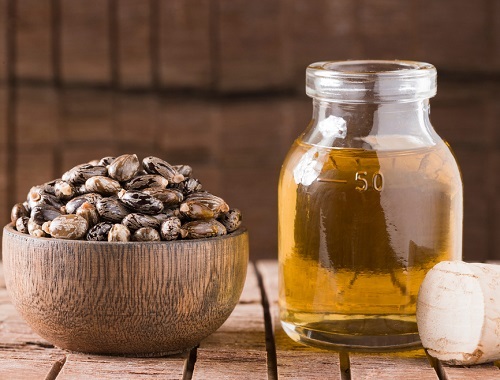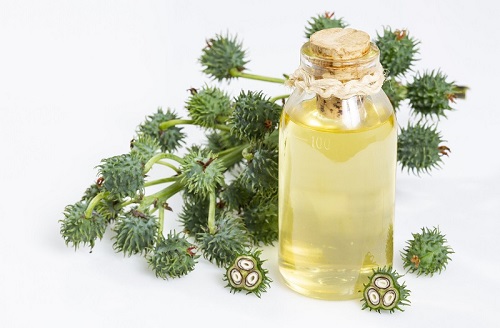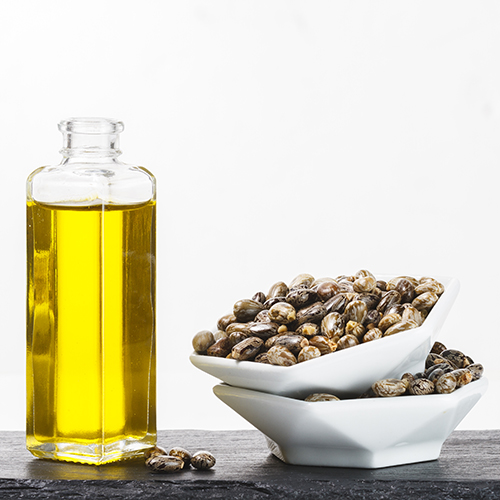Does Castor Oil Go Rancid? Let’s learn in detail about the oil’s shelf life and how you can retain it for long!
Have you ever noticed your bottle of castor oil turning crystallized or cloudy? Well, these can be signs of your magic potion losing its effectiveness. So Does Castor Oil Go Rancid? Let’s learn about the aspects of Castor Oil Rancidity in detail!
Get the Best Castor Oil Buying Guide here
The Science Behind Castor Oil Rancidity
Before exploring whether castor oil can go rancid, let’s delve into the science of rancidity. The process of castor oil rancidity unfolds gradually, with discernible changes in odor, color, and texture as telltale signs of degradation. These changes serve as indicators that the oil has likely turned rancid.
When castor oil comes into contact with air, it undergoes a chemical reaction known as oxidation, leading to changes in smell, color, and texture. Elevated temperatures can accelerate this oxidation process, causing the oil’s beneficial components to break down more quickly. Additionally, exposure to light, especially sunlight, can speed up the breakdown of the oil’s molecules, resulting in rancidity.
While less common in oils compared to water-based products, moisture can also introduce mold and bacteria, leading to spoilage and further deterioration.
Does Castor Oil Freeze? Learn here
Can Castor Oil Go Rancid?
Yes, castor oil does go rancid after its shelf life. Derived from the seeds of the Ricinus communis plant, it maintains a shelf life generally ranging from 2 to 5 years when unopened. Under ideal storage conditions, this shelf life can extend up to 5 years. The unique composition of castor oil, with over 90% of its fatty acids being ricinoleic acid—a monounsaturated fat—grants it a relatively high resistance to oxidation.
Discover the Ayurvedic Benefits of Castor Oil here
How to Tell if Castor Oil is Rancid?
Identifying expired castor oil involves monitoring the castor oil expiration date, often found on the bottle. Additional indicators of potential expiration include changes in smell, color, texture, and taste. Fresh castor oil has a mild, nutty, or earthy aroma, while an off or rancid smell could suggest spoilage. Normal castor oil appears as a clear, pale yellow liquid, so any darkening or cloudiness might indicate that it has gone bad.
In terms of texture, castor oil is usually smooth and somewhat thick, but a change to excessive thickness, stickiness, or graininess may indicate expiration. Lastly, although castor oil isn’t commonly consumed, an unusually bitter taste could suggest spoilage. It’s important to remember that ingesting rancid oil can lead to discomfort or health issues.
Is Castor Oil Flammable? Learn here
Consequences of Using Expired Castor Oil
Using expired castor oil, whether applied topically or ingested, can lead to various negative consequences. When used on the skin, it might irritate due to the breakdown of beneficial fatty acids, resulting in redness, itching, or rashes. Moreover, the effectiveness of expired castor oil diminishes, leading to suboptimal outcomes for purposes such as hair growth, skincare, or overall well-being.
Additionally, expired oils can potentially harbor bacteria or fungus, increasing the risk of skin infections. Ingesting rancid castor oil could also result in digestive discomfort or more severe symptoms like nausea, vomiting, or diarrhea. Therefore, avoiding castor oil that has gone bad is crucial to prevent these potential adverse effects.
Learn about the Presence of Hexane in Castor Oil here
Tips for Extending Castor Oil Shelf Life
Proper storage is vital to preserving castor oil’s quality and longevity:
- Prevent Heat Exposure: Store in a cool environment, avoiding direct sunlight or heat sources.
- Minimize Light Contact: In a dim location, shield from light exposure, especially sunlight.
- Ensure Tight Seal: Seal the container after use to prevent air exposure.
- Consider Refrigeration: Refrigeration can further slow oxidation.
- Avoid Contamination: Use clean utensils to prevent the introduction of microbes.
Get some Expert Castor Oil Buying Tips here
Key Takeaways
So Can Castor Oil Go Rancid?—It does. while the oil is relatively stable due to its high ricinoleic acid content, it is not immune to spoilage. Over time, approximately around 2-5 years of exposure to elements like air, light, and heat can trigger oxidation, leading the oil to turn rancid.
Therefore, proper storage conditions are essential for extending its shelf life. Monitoring the oil for changes in smell, color, and consistency can help identify early signs of deterioration and ensure that you’re using the product while it’s still effective and safe.
Frequently Asked Questions (FAQs)
1. Does Castor Oil Expire?
Castor oil does have a shelf life and can eventually expire due to oxidation. It’s important to monitor signs of degradation.
2. What Are the Signs of Expired Castor Oil?
Changes in color, smell, and texture indicate expired castor oil. Darkening, cloudiness, or an off-putting odor are key indicators.
3. Can Expired Castor Oil Be Used for Other Purposes?
It’s best to avoid using expired castor oil, as it could lead to discomfort or adverse reactions when ingested or applied.






